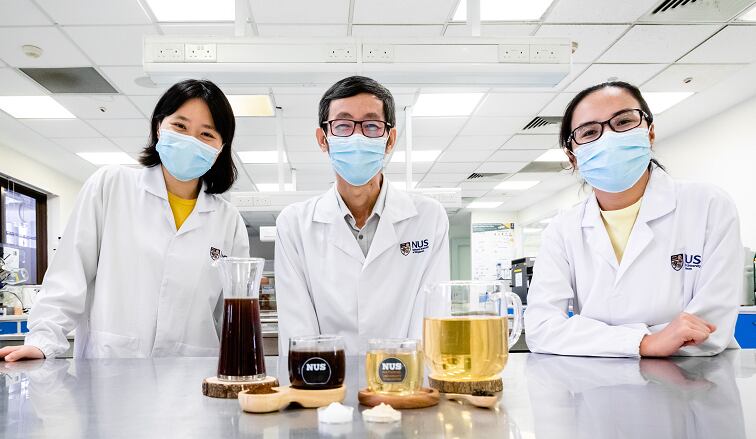Supervised by Associate Professor Liu Shao Quan from the Department of Food Science and Technology at NUS, the plan is to commercialise the products into ready-to-drink bottled or canned beverages, which could be stored chilled or at room temperature for more than 14 weeks.
The probiotic coffee contains the strain Lactobacillus rhamnosus GG (LGG).
It is one of the most widely used strains commercially, and a host of benefits such as the stimulation of immune responses, as well as preventing allergic symptoms and gastrointestinal infections, have been documented.
The probiotic tea, on the other hand, contains the Lactobacillus plantarum strain, also known for regulating the immune system and keeping the intestinal flora in balance.
Containing at least one billion units of live probiotics, these products are developed by AP Liu and his two doctoral students, Wang Rui and Alcine Chan.
Speaking to NutraIngredients-Asia, AP Liu highlighted that the tea and coffee were fermented after adding the probiotics. This in turn enables the beneficial bacteria to become “active” and are able to colonise the gut when consumed.
“The concept of probiotic tea and coffee is not new. However, most commercially available products are unfermented; they are made just by mixing the bacteria in the form of bacillus spores into the tea and coffee.
“Bacillus spores are robust, resistant microbiological structure resistant to heat and pH to a certain degree. They are alive but not active,” AP Liu explained.
He added that when the probiotics undergo fermentation, the beneficial bacteria could produce acids and anti-bacteria to fend off bad bacteria.
After undergoing heat treatment, the filtered tea and coffee are infused with a nutrient agent and then inoculated with a mixed culture and probiotics.
After which, the tea and coffee undergo a patented fermentation process for about one to two days.
Taste and mouthfeel
The team also needed to consider the product mouthfeel and taste during the process.
According to Wang, who developed the probiotic tea, the original flavour of tea is largely retained, with more fruity and floral notes introduced.
“The probiotic tea tastes like fruit tea with a little bit acidity, and a similar mouthfeel to the original tea. Drinkers can add sweeteners and milk, or cream, based on their preferences,” she said.
On the other hand, Chan, who developed the probiotic coffee, said that she had to find a balance between taste and the amount of nutrient added for facilitating probiotic growth.
“The formulation is tricky, especially relating to the type and amount of nutrients added, and the probiotic combination. Not every type of probiotic can grow in coffee brews. Adding too few nutrients will not enable probiotic growth while adding too many nutrients will give an unpleasant taste,” she said.
The team has filed a patent for the probiotic coffee recipe.
Metabolomic studies
Metabolomic studies are now conducted on the products to identify the beneficial metabolites using LC/Q-TOF, AP Liu said.
These metabolites could include polyphenolic compounds found richly in tea and coffee as well as glycosides.


